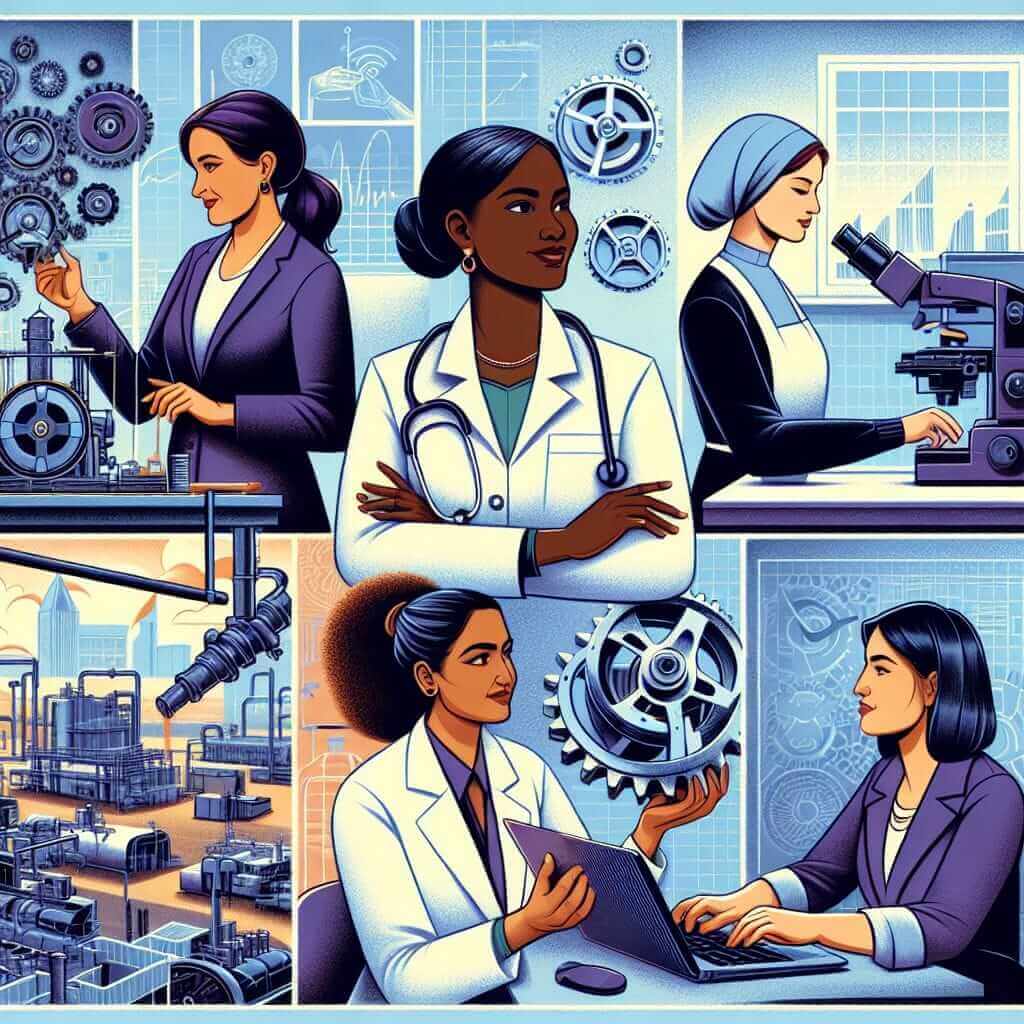The IELTS Reading component is designed to evaluate a candidate’s comprehension skills through a range of texts and question types. One recurring theme in IELTS Reading passages is the “Role of women in economic development”. This topic has both historical significance and contemporary relevance, making it a popular subject matter for test authors.
Given its prevalence, this article provides a detailed reading practice passage, sample questions, and answers focusing on the role of women in economic development. Utilizing real historical IELTS test samples as references, we’ve created a practice exercise that closely mirrors the actual IELTS Reading test format.
Passage: Role of Women in Economic Development
Women’s Contributions: Past and Present (Medium Text)
The role of women in economic development has evolved significantly over the centuries. Historically confined to household responsibilities, women’s roles have transitioned to include active participation in the workforce, contributing to national economic growth and development. In many countries during the twentieth century, women began to work outside their homes, pursuing careers in education, healthcare, and business.
The economic landscape has further been enriched by women entrepreneurs who have established successful businesses, thereby creating job opportunities and stimulating economic vibrancy. According to the World Bank, female-owned businesses significantly contribute to GDP growth, especially in developing nations. Women’s economic participation not only enhances their own financial security but also brings about broader societal benefits, including improved child health and education.
However, women still face substantial barriers in the economic sphere. Discriminatory practices, lack of access to education, and gender-based violence significantly impede their ability to fully participate in economic activities. Policies aimed at gender equality and female empowerment are crucial to overcoming these challenges.
Furthermore, investing in women’s education and professional training results in higher economic returns. Educated women are more likely to participate in the labor market and earn higher wages, which in turn boosts economic development. Empowering women through education and supportive policies is essential for sustainable economic growth.
In summary, the evolving role of women in economic development is a testament to their resilience and capabilities. Their contributions are integral to achieving equitable and sustainable economic progress.

Sample Questions
Multiple Choice Questions
-
According to the passage, what significantly contributes to GDP growth in developing nations?
- A. Male-owned businesses
- B. Government investments
- C. Female-owned businesses
- D. Foreign aid
-
What are some barriers that women face in economic participation as mentioned in the passage?
- A. Lack of interest in working outside the home
- B. Discriminatory practices and gender-based violence
- C. Overqualification
- D. Economic policies focused only on men
True/False/Not Given
- True/False/Not Given: The World Bank states that female-owned businesses are vital for GDP growth in developed countries.
- True/False/Not Given: Educated women are less likely to participate in the labor market.
Sentence Completion
- Investing in women’s education and professional training results in higher ___ returns.
Answer Keys and Explanations
Multiple Choice Answers
-
C. Female-owned businesses
- Explanation: The passage clearly states that female-owned businesses significantly contribute to GDP growth, especially in developing nations.
-
B. Discriminatory practices and gender-based violence
- Explanation: The passage lists discriminatory practices, lack of access to education, and gender-based violence as substantial barriers to women’s economic participation.
True/False/Not Given Answers
-
Not Given
- Explanation: The passage only mentions the World Bank’s insights on developing nations, not developed countries.
-
False
- Explanation: The passage indicates that educated women are more likely to participate in the labor market and earn higher wages.
Sentence Completion Answer
- economic
- Explanation: The passage states that investing in women’s education and professional training results in higher economic returns.
Common Mistakes
- Misreading the passage and incorrectly inferring information not explicitly stated can lead to errors, especially in True/False/Not Given questions.
- Overlooking keywords and failing to connect them with the questions can lead to inaccurate answers.
Vocabulary
- Entrepreneurs (noun) /ˌɒn.trə.prəˈnɜːrz/: individuals who start and run businesses.
- Labor market (noun) /ˈleɪ.bər ˈmɑːr.kɪt/: the supply and demand for labor, where employers find workers and workers find jobs.
- Discriminatory (adjective) /dɪˈskrɪm.ɪˌneɪ.tər.i/: showing bias or prejudice.
Grammar Focus
- Present Perfect Tense: Used to describe actions that have occurred at some unspecified time between the past and now, e.g., “Women have established successful businesses.”
- Relative Clauses: Used to provide additional information about a noun, e.g., “Policies aimed at gender equality, which are crucial, help overcome these challenges.”
Conclusion
To excel in the IELTS Reading section, consistent practice with materials related to common themes, such as the role of women in economic development, is essential. Paying close attention to keywords, understanding different question types, and expanding vocabulary and grammar knowledge are key strategies for success.
For further practice, explore more readings on gender equality and economic growth at The Role of Gender Equality in Economic Growth and The Role of Women in Politics.
Good luck with your IELTS preparation!